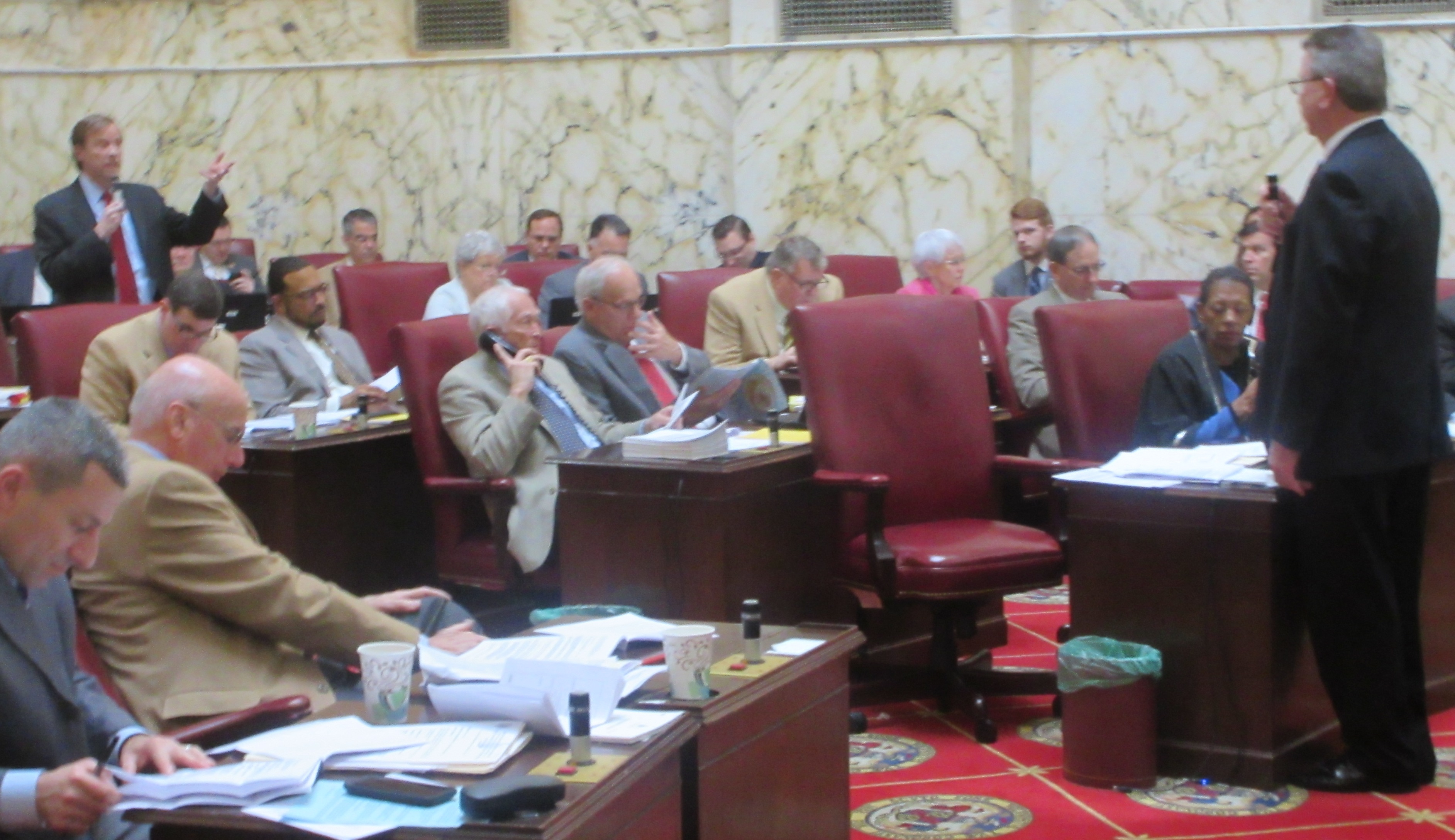By Len Lazarick
A few Senate Democrats last week raised significant questions about paid sick leave legislation that had finally come to the floor. The votes on the dozen amendments to SB230 that were rejected also showed that the legislation does not have a veto-proof majority, with four or five Democrats joining with Republicans favoring less comprehensive coverage.
“I have heartburn about the bill,” said Sen. Bobby Zirkin, D-Baltimore County, chairman of the Senate Judicial Proceedings Committee. He was concerned about the cost to a constituent who has a company providing hundreds of temporary lifeguards.
The House passed an even more expansive version of paid sick leave March 3, HB1. Both chambers rejected Republican attempts to make the legislation more like that proposed by Gov. Larry Hogan. His version covers only employees at firms of 50 or more, and provides tax credits for smaller employers to offer sick leave, rather than mandates and fines.
The more wide-ranging Senate debate showed the problems with the state mandating the number of hours of earned sick leave and how many hours of full- and part-time work are needed to earn them.
The bill impacts the way businesses have to count the hours and days worked. Under both House and Senate versions, even employers of fewer than 15 workers must offer unpaid sick leave, and keep track of part-time and temporary employees.
If the Senate passes its version this week, its provisions must still be reconciled with the more generous benefits offered by the House bill.




The passing of any of these paid sick leave bills is exceedingly detrimental to businesses in this state. Piled on top of the ever increasing minimum wage, regulations like this continue to make it difficult to do business in this state. Aside from the damages to small businesses, one of the most overlooked aspects of this continued pressure on small businesses is the fact that it is fast becoming too difficult to survive as a small business and what the state is going to be left with is large, corporate businesses, either through business closures or the sales of businesses to larger competitors. These larger businesses do not treat their employees and their community with the same care and involvement that a local small business would. Maryland continues to come up with ways to make it hard to create jobs, build businesses and support our communities.